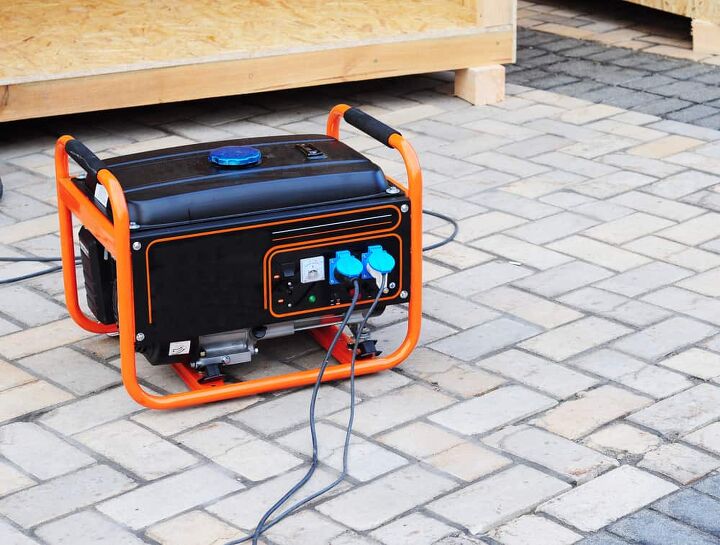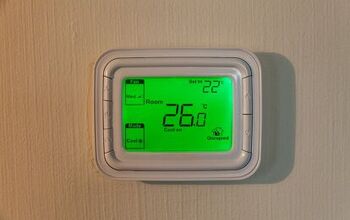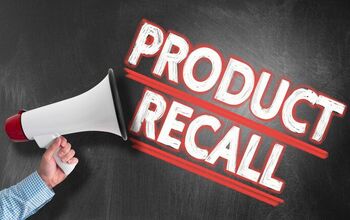Generator Runs For A Few Seconds Then Stops?

If you have ever run a generator, that frustrating feeling when it runs a few seconds and stops is not good. Whether it results in a ruined camping trip or reading by candlelight, it isn’t a fun experience. So what do you do when your generator does this?
Remove your fuel line and clean it with a thin brush or wire if your generator briefly runs and shuts off. Use a turkey baster to remove debris within your fuel tank or remove and clean your generator’s fuel filter. Make sure that your generator isn’t overloaded and is intended for the size of your home.
While fuel issues are the most common, you could also run into more complicated problems. We will go through those in this article.
Do You Need Generator Repair Services?
Get free, zero-commitment quotes from pro contractors near you.

What Causes A Generator To Run For A Few Seconds And Stop?
- Clogged fuel line
- Dirty or damaged fuel tank
- Dirty fuel filter
- Low fuel
- Generator is overloaded
- Clogged carburetor
- Forgetting to follow startup instructions
- Low oil
- Low water in the radiator
Clogged Fuel Line
One of the most common generator issues you can run into is a clogged fuel line. A fuel line typically is clogged by putting in dirty gasoline or leaving fuel in there for too long.
To clean it, remove the line and remove any debris with a wire or paintbrush. Be sure that the brush you use is just small enough to get into the fuel line. After this, you will want to clamp the fuel line shut to check on the next potential issue.
Dirty or Damaged Fuel Tank
A dirty fuel tank leads to a clogged fuel line, so the two issues are directly linked. Again, these issues can be caused by using old gasoline or leaving it in the tank. You can use a turkey baster to remove most floating objects there. Before you close up the tank, use a flashlight to see if you can’t see any holes or cracks.
If you find any holes or cracks, newer systems are more likely to recognize this. You may need to replace the tank if this gets bad enough. If it is still under warranty, contact the associated company.
Dirty Fuel Filter
Another piece you will want to look into while looking at the fuel tank will be the filter. Much like any other type of filter, too many debris can cause significant issues throughout your generator.
Given that you are more likely to do this than replacing an entire fuel tank, you should be able to purchase a backup option. Just be sure that the fuel filter that you have as a backup has the same specifications. A fuel filter for one type of generator may not work for a different kind of generator.
Low Fuel
While it may seem simplistic to include on this list, generators are pretty easy to forget about until you need them. As a result, it is always good to check on the fuel level periodically.
If you use your generator for your home’s backup, be sure they are ready before the hurricane season. During this season, checking your generator should be a regular habit. If you use it for camping, you don’t need to worry about filling it until you need it. Just be sure you stop by a gas station before you hit your destination.
Generator Is Overloaded
The owner’s manual of any generator will tell you its limitations. Because of this, it is a good idea for you to check on your generator’s limit before planning on using it.
It is especially essential for those who use it for your home’s backup. Ask yourself what the most critical aspects of your house need to stay powered. Turn off your less essential items.
When you purchase a generator, be sure that you know what your generator runs. By buying a whole house generator, you should have some confidence in this area already. However, most generators in this area should be around 7500. Repeated overloading of your generator will cause it to turn off regularly. Ignoring this could lead to long-term damage.
Clogged Carburetor
Much like your fuel tank, line, and filter, your carburetor also has the potential to be clogged. This problem has a much higher chance of coming up if you leave fuel in your tank for an extended period.
If this happens, you can use carburetor cleaner to flush out the sticky substance left behind. You can also choose to take apart your generator to clean this, but that requires a high technical ability level.
Forgetting To Follow Startup Instructions
Many generators have specific startup instructions when you use it. For example, a generator may require you to turn the choke down to half after it runs for a couple of minutes.
Before you purchase and start your generator, it is essential to follow the owner’s manual direct instructions. Failure to do so will potentially cause long-term damage to your generator.
Be sure that the oil level in your generator is to acceptable levels. Less than a quart of oil is typically required. Too much can drown and overflow your motor. Too little can cause undue stress on your engine.
Low Oil
Sensors in your engine will prevent it from running if it detects low oil. Because of this, your generator can repeatedly start and stop as a result of low oil.
If this is the apparent cause of your generator not running, top off your oil. If your oil sensor is malfunctioning, we have a guide on how to bypass a low oil sensor here.
Low Water In Radiator
Among sensors in your modern generator, you have one sensor that checks on the water level in your generator’s radiator. Not all generators come with radiators, so check your owner’s manual before making this assumption.
If your problem is related to an underfilled radiator, top it off based on instructions from your owner’s manual.
Do You Need Generator Repair Services?
Get free, zero-commitment quotes from pro contractors near you.

Related Questions
What If My Generator Runs For An Hour And Then Stops?
Modern generators have light-up displays that allow you to see the details of any issue. If it runs for an hour, that means that the problem is not immediately apparent.One of the more common issues you run into with this is related to the oil pump. It is likely the issue if you do have a low oil indicator. Still, it may not shut off immediately after this because it may see the oil as full enough to run for a bit.Unless you have an ample amount of technical skill, you aren’t likely to have the ability to replace the oil pump. Consult the customer service department of your company. Depending on the expected shelf life for this item, you could request a replacement.
Why Is My Generator’s Voltage Is Fluctuating?
The biggest problem with electrical issues is that it takes a more significant deal of effort to locate the problem. If your voltage fluctuates heavily over the usage, the case can be anywhere from the engine’s wires.The engine can be pretty obvious, as you can listen to how the motor runs to see if the issue originates there. In many cases, you have some control over the speed (RPMs) of the engine. Check to see if there is a setting for this. If it is an issue related to the cables, see if you can run an amperage test on those. If you have an amp tester, you may have some success here.
How Do I Know If My Generator Is Overloaded?
Obvious signs of an overloaded generator come from dimming lights or low effectiveness of cooling or heating systems. It can happen despite your generator running at full capacity.If you are looking for a generator, you may see soot in the exhaust. If you find this, stop the generator before any potential damage can happen. Decide which systems you are willing to sacrifice to maintain your standard of living. Possibly consider purchasing a more massive generator later if you feel that losing too many systems would be inconvenient.

I'm a guy who becomes the expert of whatever I stumble upon, writing-wise. I've written tons about cool home products, home improvement, and smart technology in the home. I'm also the proud father of a kiddo born on new years, making my holidays very busy.
More by Eli Smith















![Standard Dining Room Table Dimensions [for 4, 6, 8, 10 and 12 People]](https://cdn-fastly.upgradedhome.com/media/2023/07/31/9074335/standard-dining-room-table-dimensions-for-4-6-8-10-and-12-people.jpg?size=350x220)











